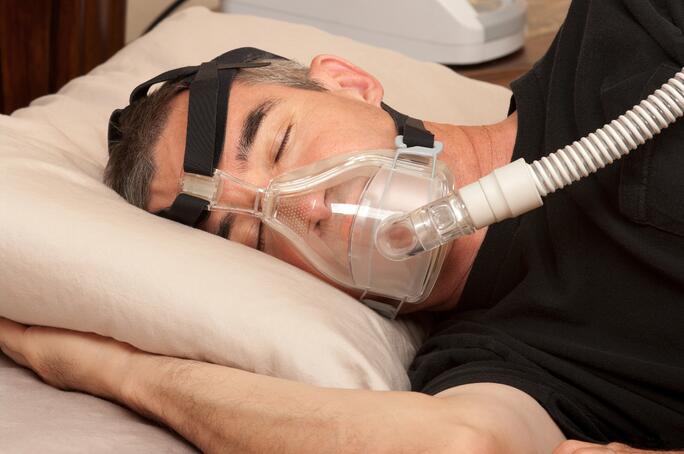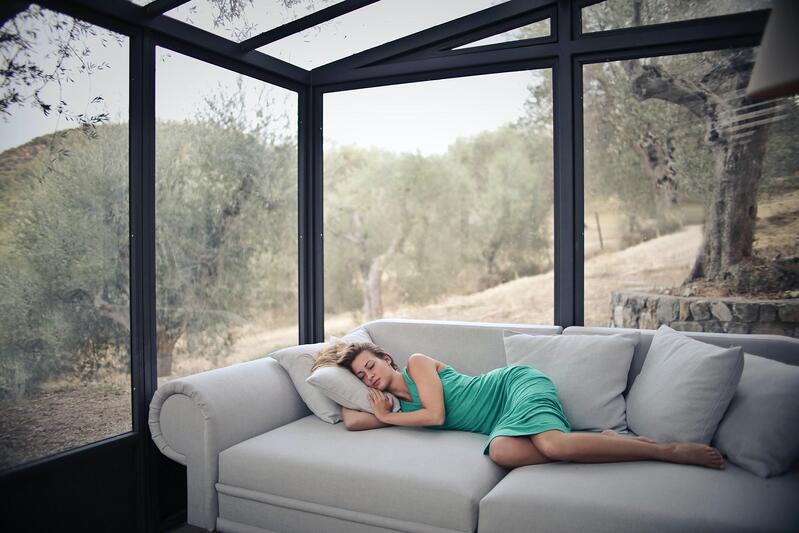Continuous positive airway pressure (CPAP) machines are a lifesaver to those struggling with obstructive sleep apnea. Whether you’re thinking about getting a CPAP machine or already have one, this post is for you.
Obstructive Sleep Apnea
Obstructive sleep apnea (OSA) is a condition where a person stops breathing periodically throughout the night. This lasts for just a few seconds, but can happen hundreds of times a night. There are a few reasons this may be happening. Sometimes a person’s tongue drops to the back of the throat, or the airway is crowded by overlarge tonsils. Some people may simply have very narrow airways.
Extra weight and fat around a person’s neck is also a contributor. As a person lays down to sleep, gravity and the extra weight press against tissue surrounding the airway, causing an obstruction. Likewise, congestion, allergies, and asthma also increase the probability of obstruction, as well as frequent alcohol use and smoking.
If you experience any of the following OSA symptoms, you should see your local sleep specialists for help:
- Snoring
- Excessive daytime sleepiness
- Morning Headaches
- Restless sleep
- Depression or irritability
CPAP Machine
A CPAP machine is used to prevent your throat from collapsing while sleeping. By providing continuous, gentle air, users are able to sleep without waking. The CPAP does not breathe for the user. It simply creates a pathway for you to breathe easier. CPAP machines are the most recommended treatment for OSA. Just one night using a CPAP machine can make a huge improvement in how patients sleep and feel the following day.
CPAP machines are very simple, consisting of a motor, hose, and mask.

Motor
CPAP motors are very quiet. It works by drawing air from the room and pressurizing it. The pressure is programmed by a sleep specialist to make sure it’s just right for you. The air passes through a filter to remove any impurities, and depending on the type of CPAP machine you have, will be sent through a humidification chamber, which is ideal for those living in dry climates.
If you are unsure whether your CPAP machine has a humidification chamber, or wonder if that feature is a good fit for you, a good way to test is the dryness of your mouth, throat, and nostrils after sleep. If you experience excessive dryness, ask you sleep specialist about a CPAP machine with a humidification chamber
When to Replace
Your CPAP machine should be replaced every five years. However, the filters and humidifier chamber need to be replaced more often. Depending on the type of machine you have, you may need to change your filters every two weeks or every 6 months. Check with your sleep specialist to ensure you are changing your filters as needed.
The humidifier water tank needs to be replaced every 6 months. For some machines, the tank may be detached and cleaned instead of replaced. Again, check with your sleep specialist for directions.
Hose
The CPAP hose carries air from the motor to the CPAP mask. The length and diameter of the hose may vary, but are generally 6 feet in length. If your CPAP machine has a humidification chamber, the hose may also be heated.
When to Replace
The hose should be replaced every three months to avoid the accumulation of contaminants. Overtime the house will begin to break down, reducing your CPAP machine’s effectiveness.

Mask
The CPAP mask is very important to your comfort. If you’re new to a CPAP machine, it’s important to choose a mask that fits to your face. Your sleep specialist can assist you to make sure your mask is not only effective, but as comfortable as possible.
There are generally three types of masks. Each have pros and cons, but you should choose the mask that best meets your needs.
Nasal Pillows
Nasal pillow masks are lightweight and minimal in design. They’re great for active sleepers that move around in their sleep, for men with beards, and those that like to wear their mask while reading or watching TV before falling asleep.
The nasal pillow is not ideal for everyone. Those with higher-pressure needs sometimes experience discomfort with the nasal pillow mask. Some who experience mouth, throat, and nasal dryness have complained about nose bleeds. And lastly, if you breathe through your mouth, this will be an unnatural mask for you.
Nasal Masks
A nasal mask is the most popular mask because of the size and fit range. This mask is triangular in shape and fits over the nose. The pressure to the nasal mask is less direct and better for those that have high-pressure settings. This mask is also great for active sleepers.
The nasal mask is not recommended for those that breathe from their mouth, or who have reoccurring allergies or colds that block sinuses. Also, some nasal mask wearers complain about the irritation caused by the pressure of the mask resting on the bridge of the nose.
Full Face Mask
The full face mask has several variations, but essentially all versions covers the nose and the mouth. These are ideal for those that breathe out of their mouth and are frequently congested. The full mask works well with high pressure settings and those that sleep on their backs, but is also good for active sleepers because of the additional straps and support.
The drawbacks with the full face mask is the chance for leakage. Since the mask cover a larger area, there is a higher chance of leaking air. Depending on where the leak is, this can cause dry, irritated eyes as well. The full face mask also makes it difficult to read or watch TV, and wear glasses, and if you’re a stomach sleeper, you’ll have a difficult time getting comfortable.
When to Replace
The actual hard, plastic part of the mask should be replaced every three months. However, the softer plastic pieces that touch your skin should be replaced more often. The mask cushion and pillows should be replaced once or twice a month. Some pieces, such as the headgear and chinstrap don’t need to be changed as often. Make sure both of these are replaced every 6 months to ensure your mask keeps a proper seal.
Purchasing Your CPAP Machine
CPAP machines and accessories can be purchased from a variety of sources. As with any product, be careful while making your selection. Be sure that you are buying your CPAP machine from a reputable company, and remember that cheaper is not always better. The right CPAP machine will greatly improve your life.
The best advice is to work with your local sleep clinic to determine which CPAP machine is best for you. The first step is to schedule and complete a sleep study, after which your sleep specialist will help you select the CPAP machine that’s right for you.
If you live in Alaska, please click on the link below to schedule a consultation with a certified sleep specialist.




